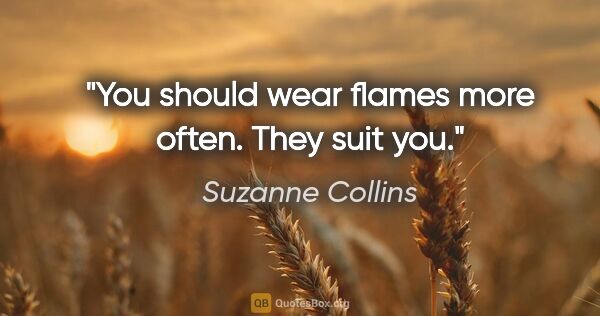Often Quotes (page 132)
Barristan Semly was not a bookish man, but he had often glanced through the pages of the White Book, where the deeds of his predecessors had been recorded. Some had been heroes, some weaklings, knaves, or cravens. Most were only men - quicker and stronger than most, more skilled with sword and shield, but still prey to pride, ambition, lust, love, anger, jealousy, greed for gold, hunger for power, and all the other failing that afflicted lesser mortals. The best of them overcame their flaws,...
George R. R. Martin
One of the most moving narratives of modern history is the story of how men and women languishing under various forms of oppression came to acquire, often at great personal cost, the sort of technical knowledge necessary for them to understand their own condition more deeply, and so acquire some of the theoretical armoury essential to change it. ... There is no reason why literary critics should not turn to autobiography or anecdotalism, or simply slice up their texts and deliver them to...
Terry Eagleton
The only gig I can remember playing in those very early days — and I think it was with Rare Breed, but it could have been under a different name, with different band members, ’cos line-ups changed so often back then — was the Birmingham Fire Station’s Christmas party. The audience consisted of two firemen, a bucket and a ladder.
We made enough dough for half a shandy (beer mixed with lemonade), split six ways.
Ozzy Osbourne

Among a large class, there seemed to be a dependence upon the government for every conceivable thing. The members of this class had little ambition to create a position for themselves, but wanted the federal officials to create one for them. How many times I wished then and have often wished since, that by some power of magic, I might remove the great bulk of these people into the country districts and plant them upon the soil? upon the solid and never deceptive foundation of Mother Nature,...
Booker T. Washington
One word is too often profaned. For me to profane it, One feeling too falsely disdain'd. For thee to disdain it. One hope too like dispair. For prudence to smother, I can give not what men call love: But wilt thou accept not. The worship the heart lifts above. And heaven rejects not: The desire of the moth for the star, The devotion of something afar. From the sphere of our sorrow?
Percy Bysshe Shelley

Economics is really about two stories. One is the story of the old economist and younger economist walking down the street, and the younger economist says, ‘Look, there’s a hundred-dollar bill,’ and the older one says, ‘Nonsense, if it was there somebody would have picked it up already.’ So sometimes you do find hundred-dollar bills lying on the street, but not often—generally people respond to opportunities. The other is the Yogi Berra line ‘Nobody goes to Coney Island anymore; it’s too...
Paul Krugman

